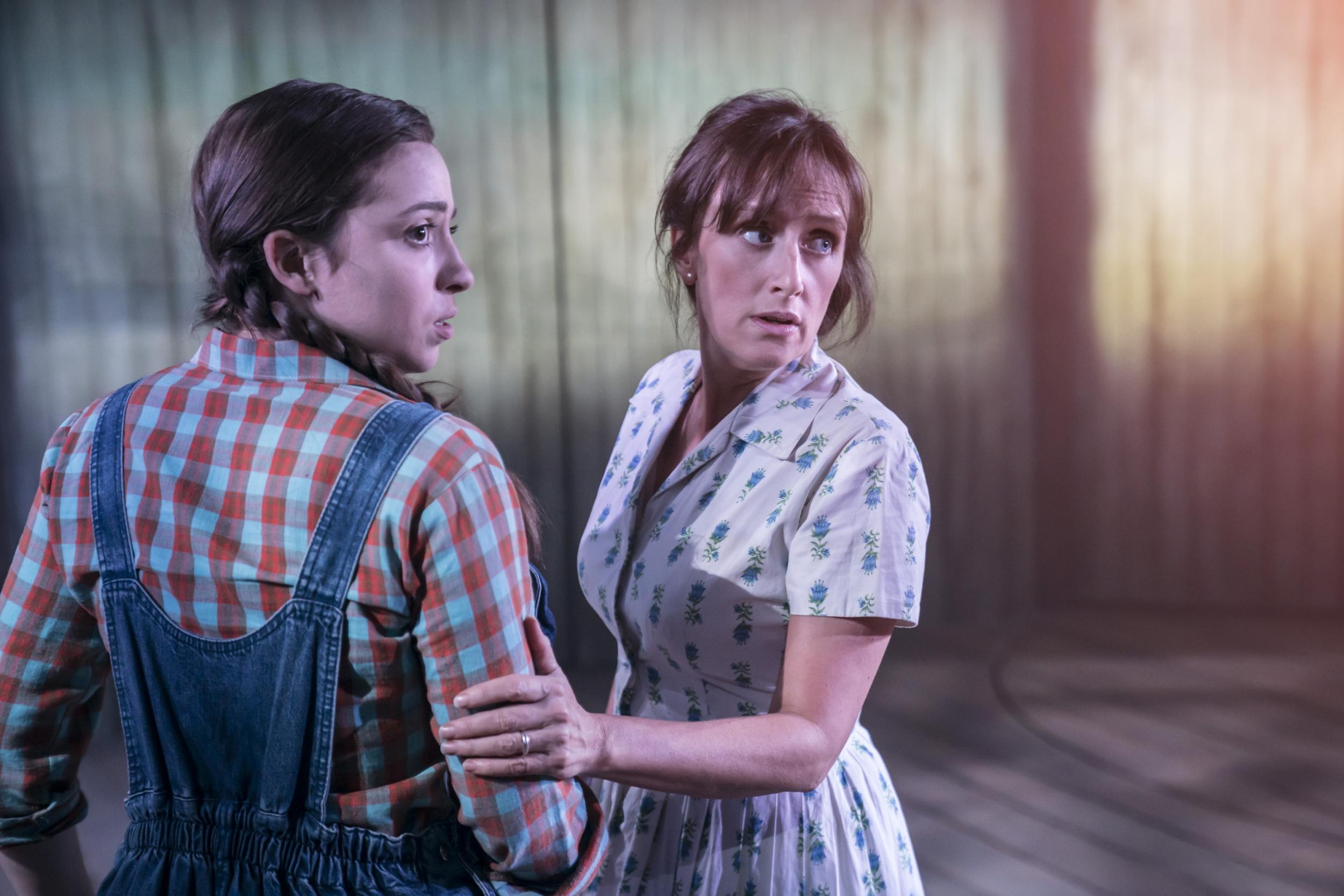The Bridges of Madison County, Menier Chocolate Factory review: A note-perfect Jenna Russell gives a genius performance
Jason Robert Brown’s musical take on this beloved story is beautifully orchestrated and occasionally sublime

Jenna Russell hits note after perfect note in this musical. At the same time, she imbues the show with a pure – shy, ardent – dramatic truth. Trevor Nunn directs this belated UK premiere of Jason Robert Brown’s intermittently lovely musical take on the story, which had a short run on Broadway in 2014. The material began life as a best-selling 1992 novel by Robert James Waller (slightly risible in its portentousness), and then captured the hearts of millions in a movie starring Meryl Streep (in one of her best performances) and Clint Eastwood, who also directed it.
The proceedings are set in the mid-1960s. Jenna Russell plays Francesca, the (still-strongly-accented) Italian war-bride who came from Napoli to the wide open farming landscape of Iowa. Her hard-working, conventional husband (who is given his due in a testy but empathetic performance from Dale Rapley) takes his teenage daughter and son to the State Fair. Francesca looks forward to having the Sixties’ equivalent of some me-time. But then a hunky photographer, assigned by the National Geographic to take pictures of the covered bridges in that area, drives his dusty blue truck into her plans. Edward Baker-Duly, who has a terrific tenor voice, certainly knows how to press his foot on the sustaining pedal of his virile vocal instrument. I reckon that I’ll be in a minority, though, in finding it hard to believe that his bashful edging towards that first kiss is his maiden voyage (so to speak) in these choppy seas.
The immigrant Francesca is beginning to feel an agoraphobia of the spirit in Iowa. She’s ripe for tentatively wondering if she should find the true meaning of home by falling into the arms of this handsome, comparatively less rooted stranger. The part allows Russell to draw on her matchless gift for projecting a kind of exalted forthrightness and wry vulnerability – qualities that can also feel complex and transfiguring, such is the extraordinary alchemy of her acting-through-song and the charged intimacy of the Menier space. It is observably the case that some people become physically more beautiful when they fall in love. It’s as if an enzyme has been released in Russell; she has never looked more glowingly lovely.
Two people past the first flush of youth; a secret extra-marital affair that will eventually have to bow to convention. The comparison is with Noel Coward’s Brief Encounter. In fact, the intense dalliance in Bridges, while it comes to feel definitive to the participants, exists in a bubble of fantasy where the considerations are arguably more aesthetic than moral. Beautifully orchestrated for a mid-scale band by the author, Jason Robert Brown’s music is at its best when imparting the couple’s rapturous sense of finding a new universe together. There’s a thrilling bit where, after a split-second’s momentous pause, it’s as if the whole orchestra heaves itself up against the sadness of gravity into a fresh tonality.
As in Sondheim’s Sunday in the Park with George, the hero’s sentimental progress is registered through his changing perception of the visual medium in which he works. Robert has been wont to take photographs from a very fixed perspective. Now, having looked at Francesca, he realises that he has to point his camera at the special something that might be forever flitting at the edge of his field of vision. At this point, the excellent music darts around with appropriate elusiveness.
Marsha Norman’s book keeps track of the central couple, and their families, in the wake of their gulpy parting. Gillian Kirkpatrick is very funny and telling as the neighbour who looks at the affair through envious binoculars but who is unobtrusively kind to Francesca during her brave, heartbreaking to return to “normal”. Nunn is a great director but he can be irresolute about when to draw stumps at Norman’s book. I began to fear that the show would purgatorially follow everyone into the afterlife. But if the piece loses its way in the second half, it boasts a genius performance and six or seven five sublime musical moments. Of how many shows could you say that?
Join our commenting forum
Join thought-provoking conversations, follow other Independent readers and see their replies
Comments
Bookmark popover
Removed from bookmarks